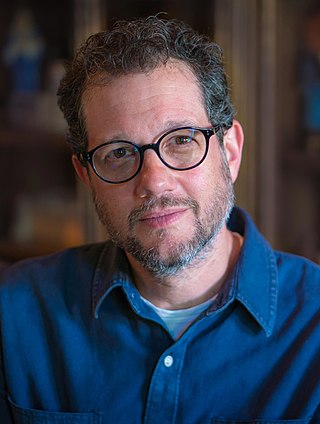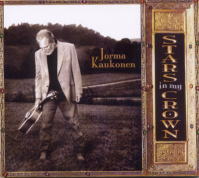
The Bee Gees were a musical group formed in 1958 by brothers Barry, Robin, and Maurice Gibb. The trio were especially successful in popular music in the late 1960s and early 1970s, and later as prominent performers in the disco music era in the mid-to-late 1970s.

Hans Florian Zimmer is a German-born American film score composer and music producer. He has won two Oscars and four Grammys and has been nominated for three Emmys and a Tony. Zimmer was also named on the list of Top 100 Living Geniuses, published by The Daily Telegraph in 2007.

Sir Barry Alan Crompton Gibb is a British musician, singer, songwriter and record producer. Along with his younger brothers, Robin and Maurice, he rose to worldwide fame as a member of the Bee Gees, one of the most commercially successful groups in the history of popular music. Well known for his wide vocal range, Gibb's most notable trait is a far-reaching high-pitched falsetto. Gibb's career has spanned over 60 years.

John Barry Prendergast was an English composer and conductor of film music. Born in York, Barry spent his early years working in cinemas owned by his father. During his national service with the British Army in Cyprus, Barry began performing as a musician after learning to play the trumpet. Upon completing his national service, he formed a band in 1957, the John Barry Seven. He later developed an interest in composing and arranging music, making his début for television in 1958. He came to the notice of the makers of the first James Bond film Dr. No, who were dissatisfied with a theme for James Bond given to them by Monty Norman. Noel Rogers, the head of music at United Artists, approached Barry. This started a successful association between Barry and the Bond series that lasted for 25 years.
Barry Gray was a British musician and composer best known for his collaborations with television and film producer Gerry Anderson.

David Arnold is an English film composer whose credits include scoring five James Bond films, as well as Stargate (1994), Independence Day (1996), Godzilla (1998) and the television series Little Britain and Sherlock. For Independence Day, he received a Grammy Award for Best Instrumental Composition Written for a Motion Picture or for Television, and for Sherlock, he and co-composer Michael Price won a Creative Arts Emmy for the score of "His Last Vow", the final episode in the third series. Arnold scored the BBC / Amazon Prime series Good Omens (2019) adapted by Neil Gaiman from his book Good Omens, written with Terry Pratchett. Arnold is a fellow of the British Academy of Songwriters, Composers and Authors.

Atticus Matthew Cowper Ross is an English musician, record producer, composer, and audio engineer. Along with Trent Reznor, he won the Academy Award for Best Original Score for The Social Network in 2010. In 2013, the pair won a Grammy Award for Best Score Soundtrack for Visual Media for their soundtrack to The Girl with the Dragon Tattoo. In 2021, alongside Jon Batiste, they won the Golden Globe and Academy Award for the soundtrack for Pixar's Soul.

Michael Giacchino is an American composer of music for film, television, and video games. He has received many accolades for his work, including an Oscar for Up (2009), an Emmy for Lost (2004), and three Grammy Awards.

Barry Adamson is an English pop and rock musician, composer, writer, photographer and filmmaker. He came to prominence in the late 1970s as a member of the post-punk band Magazine and went on to work with Visage, Nick Cave and the Bad Seeds, and the electro musicians Pan Sonic. In addition to prolific solo work, Adamson has also remixed Grinderman, The Jon Spencer Blues Explosion, Recoil and Depeche Mode. He also worked on the soundtrack for David Lynch's surrealistic crime film Lost Highway.
Since its inception in 1962, the James Bond film series from Eon Productions has featured many musical compositions, many of which are now considered classic pieces of British film music. The best known piece is the "James Bond Theme" composed by Monty Norman. Other instrumentals, such as "On Her Majesty's Secret Service", and various songs performed by British or American artists such as Shirley Bassey's "Goldfinger", Nancy Sinatra's "You Only Live Twice", Paul McCartney's "Live and Let Die", Carly Simon's "Nobody Does It Better", Sheena Easton's "For Your Eyes Only", Duran Duran's "A View to a Kill", Tina Turner's "GoldenEye" also become identified with the series.

The "James Bond Theme" is the main signature theme music of the James Bond films and has featured in every Bond film since Dr. No in 1962. Composed in E minor by Monty Norman, the piece has been used as an accompanying fanfare to the gun barrel sequence in every Eon Bond film besides Casino Royale.

Victor Harold Flick is an English studio guitarist, best known for playing the guitar riff in the "James Bond Theme".

Dr. No is the film score for the 1962 film of the same name composed by Monty Norman.

From Russia with Love is the soundtrack for the second James Bond film, From Russia With Love. This is the first series film with John Barry as the primary soundtrack composer.

Goldfinger is the soundtrack of the 1964 film of the same name, the third film in the James Bond film series, directed by Guy Hamilton. The album was composed by John Barry and distributed by EMI. Two versions were released initially, one in the United States and the United Kingdom, which varied in terms of length and which tracks were within the soundtrack. In 2003, Capitol-EMI records released a remastered version that contained all the tracks within the film.

On Her Majesty's Secret Service ("OHMSS") is the soundtrack for the James Bond film. It was composed, arranged, and conducted by John Barry; his fifth in the series.

Stars in My Crown is a Jorma Kaukonen studio album released in 2007 on Red House Records. Kaukonen returned to songwriting with this album, and again incorporated the work of several contributing musicians including Barry Mitterhoff, who had been playing mandolin with Hot Tuna since 2002. The album made it to the Billboard charts for "Top Heatseekers" peaking at #37.
Skyline was a newgrass group active in the 1970s and 1980s headed by Tony Trischka. The band consisted of Trischka, Danny Weiss on guitar and vocals, Dede Wyland on guitar and vocals, Larry Cohen on bass, and Barry Mitterhoff on mandolin. In the last year of their career Dede Wyland left the band and was replaced by Rachel Kalem. They were a major proponent of the "newgrass" sound, known for jazz-infused riffs and extensive use of harmony in their singing. Their first album, Skyline Drive, was released in 1977. The band released several more albums over the next few years, culminating with their final release, Fire of Grace, in 1989. In 1999, they released a retrospective album called Ticket Back.

Nicholas Britell is an American film and television composer. He has received numerous accolades including a Emmy Award as well as nominations for three Academy Awards and a Grammy Award. He has received Academy Award nominations for Best Original Score for Barry Jenkins' Moonlight (2016) and If Beale Street Could Talk (2018), and Adam McKay's Don't Look Up (2021). He also scored McKay's The Big Short (2015) and Vice (2018). He is also known for scoring Battle of the Sexes (2017), Cruella (2021), and She Said (2022).

X-Men: First Class is the soundtrack album to the 2011 film X-Men: First Class. The film, directed by Matthew Vaughn, is based on the X-Men characters appearing in Marvel Comics, and is the fourth mainline installment in the X-Men film series and the fifth installment overall. Henry Jackman, who had worked with Vaughn in Kick-Ass (2010) composed the score, becoming the fourth composer to score for the series. The score consisted of pop and rock infused music, which is reminiscent of John Barry's themes from the 1960s.

















